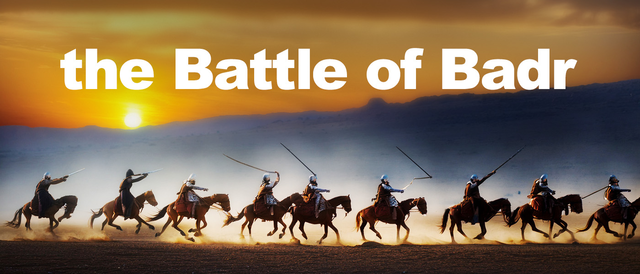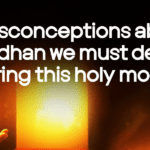The Battle of Badr

The Battle of Badr was the first major military confrontation in Islamic history and a defining moment for the Muslim community. Fought on the 17th of Ramadhan in the second year after the Hijrah (624 CE), this battle was both a test of physical endurance and it was also a great spiritual trial for the believing Muslims. The victory at Badr was a clear sign of Allah (SWT)’s support for the believers which reinforced their faith and established the Muslim community as a formidable force.
This article provides a detailed account of the Battle of Badr, its background, key events, and its lasting impact on Islamic history, using authentic sources from The Quran, ahadith, and historical records.
Why Did the Battle Happen?
- Persecution in Makkah and the migration to Madinah: For over a decade, the early Muslims in Makkah faced relentless persecution at the hands of the Quraysh, the powerful tribe that controlled the city. Many were tortured, forced into exile, and even killed. After enduring years of hardship, the Prophet Muhammad (SAW) and his followers migrated to Madinah in what is now known as the Hijrah (migration) in 622 CE. However, the Quraysh were not willing to let the Muslims live in peace. They saw the growing Muslim community in Madinah as a direct threat to their economic and political dominance in Arabia.
- The Quraysh’s trade caravan and the Muslim response: In early 624 CE, a Quraysh trade caravan, led by Abu Sufyan, was returning from Syria to Makkah, carrying significant wealth. The Prophet (SAW) and his companions planned to intercept this caravan as a way to weaken the Quraysh economically and reclaim some of the wealth that had been confiscated from them when they were forced to leave Makkah. Abu Sufyan, sensing the danger, sent an urgent message to Makkah, calling for military reinforcements. The Quraysh responded by raising a large army of 1,000 warriors, including their most skilled fighters, and set out to confront the Muslims.
The Muslim Army and the Quraysh Forces
- The Muslims: The Prophet (SAW) and 313 companions marched towards Badr, a strategic location with access to water wells. However, they were not expecting a large-scale battle. The Muslim army consisted of:
- Only two horses and 70 camels (the men would take turns riding).
- Relatively few weapons and armor.
- Deep faith and reliance on Allah (SWT).
- The Quraysh: On the other hand, the Quraysh arrived at Badr with:
- 1,000 warriors
- 100 horses and 600 suits of armor.
- A strong sense of arrogance, believing they would easily defeat the Muslims
Despite being outnumbered, the Muslims stood firm, placing their yaqeen (faith) in Allah (SWT) that they would become successful in the end.
The Night Before the Battle
That night, the Prophet (SAW) spent hours in deep supplication, praying to Allah (SWT) for victory. He raised his hands and made one of the most powerful duas in Islamic history:
للَّهُمَّ أَنْجِزْ لِي مَا وَعَدْتَنِي اللَّهُمَّ آتِ مَا وَعَدْتَنِي اللَّهُمَّ إِنْ تَهْلِكْ هَذِهِ الْعِصَابَةُ مِنْ أَهْلِ الإِسْلاَمِ لاَ تُعْبَدْ فِي الأَرْضِ
“O Allah, fulfill for me what You have promised me! O Allah, grant me what You have promised me! O Allah, if this small group of Muslims perishes today, You will not be worshipped on earth!” (Sahih Muslim, 1763)
Allah (SWT) then revealed a promise of divine assistance:
إِذْ تَسْتَغِيثُونَ رَبَّكُمْ فَٱسْتَجَابَ لَكُمْ أَنِّى مُمِدُّكُم بِأَلْفٍۢ مِّنَ ٱلْمَلَـٰٓئِكَةِ مُرْدِفِينَ
“Remember when you cried out to your Lord for help, He answered, “I will reinforce you with a thousand angels—followed by many others.” (The Clear Quran®, 8:9)
That night, Allah (SWT) granted the Muslims peace and sleep, strengthening their spirits for the battle ahead.
The Day of the Battle
- The Prophet (SAW)’s tactical strategy: On the morning of 17th Ramadhan, the Prophet (SAW) carefully positioned the Muslim army. They controlled the wells of Badr, cutting off the enemy’s access to water, and the Muslim ranks were disciplined and united under one leadership, while the Quraysh forces lacked unity. Before the battle began, the Prophet (SAW) lifted his sword and asked, “Who will take this sword and do justice with it?” Many companions wanted to take it, but the Prophet (SAW) handed it to Abu Dujanah, who fought bravely with it. (Riyad as-Salihin, 91)
- The duels and the start of the battle: As per Arab custom, the battle began with individual duels. Three warriors from the Quraysh—Utbah ibn Rabi’ah, Shaybah ibn Rabi’ah, and Al-Walid ibn Utbah—stepped forward and challenged the Muslims. The Prophet (SAW) sent three of his bravest companions, Hamza ibn Abdul Mutallib, Ali ibn Abi Talib, and Ubaydah ibn Al-Harith. Hamza ibn Abdul Mutallib and Ali ibn Abi Talib swiftly defeated their opponents, while Ubaydah ibn Al-Harith was injured and later attained martyrdom. After this, the full battle erupted and the Muslims, despite being outnumbered, fought with courage.
Divine Help and the Turning Point
As the battle raged on, Allah (SWT) sent angels to support the Muslims. Many companions reported seeing white-clothed warriors on horseback fighting alongside them. Allah (SWT) said in The Quran, “Indeed, Allah made you victorious at Badr when you were vastly outnumbered. So be mindful of Allah, perhaps you will be grateful.” (The Clear Quran®, 3:123)
After fierce fighting, the Quraysh began to retreat. 70 of their men were killed, including Abu Jahl, one of Islam’s greatest enemies. Another 70 were captured, and the Muslims secured a decisive victory.
Aftermath and Victory
- The victory at Badr boosted Muslim morale and established them as a powerful force.
- Many Quraysh leaders who opposed Islam perished, causing them to weaken their grip on Makkah
- Some captives were freed upon teaching Muslim children to read and write.
- The Muslims gained weapons and armor, strengthening their defenses for future battles.
The victory proved that faith and reliance on Allah (SWT) are greater than numbers or material strength.
The Battle of Badr was a turning point in Islamic history. It showed that Allah (SWT) supports those who strive in His cause with sincerity.
May we draw inspiration from the bravery and faith of the companions and always trust in Allah (SWT)’s help in our struggles.
Interested in learning more about the Battle of Badr? Consider purchasing these books from Furqaan Bookstore for your bookshelf!
- The Great Battle of Badr—Islamic Book Service
- The Great Battle of Badr—Muhammad Ahmad Bashumail
- Kitab At-tabaqat Al-kabir Volume III: The Companions of Badr—Aisha Bewley
- In Defence of the True Faith—Darussalam




